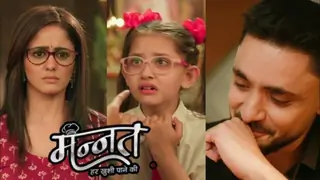Begum Akhtar
The name of Begum Akhtar has a special significance and meaning for lovers of the light classical variety like thumri and dadra, as also popular genres like ghazal and geet. As is known, each of these song-forms expresses a vital species of poetry. Each has a charm and appeal all its own. Flexible in form and lyrical in content, these song-forms afford unlimited scope for expressing the subtlest nuances of emotion. In other words, sensuous romanticism is the very essence of these songs. Their renditions call for a great deal of talent and imagination on the part of the singer to be able to depict their poetic fineries with musical sensitivity.
Admittedly, the technique involved in their depiction is both distinct and difficult. It demands long, arduous traditional training. If authentic exponents of these great heritage are getting fewer and fewer with each passing year, it is because the halcyon days of such traditional training, riyaaz and dedication have also gone with the stalwarts like Begum Akhtar. Although there was no music in the family, timbre and tone coursed through young Akhtar's veins.
She was barely seven when she was captivated by the music of Chandra Bai, an artiste attached to a touring theatre group.With initial training from Imdad Khan, a sarangi player from Patna, Faizabad-born Akhtari began her musical career. She came to be groomed as a classicist by traditional training from Ata Mohammad Khan of Patiala and Abdul Wahid Khan of Lahore in subsequent years. But her real aptitude was for light classical music, in which she was destined to emerge peerless.
In her quest, she was inspired by Jaddan Bai, a noted dispciple of the great thumri singer, Moijuddin Khan (and mother of the late celebrated film actress, Nargis), and the equally noted Barkat Ali Khan, the younger brother of Bade Ghulam Ali Khan. Begum Akhtar's music presented an uncanny fusion of technique and appeal. There was in her singing an incredible blend of all that was best in the Purabi, and Punjab genres of light classical singing. Whatever the song-form, she had evolved her own individual and inimitable style of presenting it.
Few, indeed, could equal her - much less surpass her - when it came to imparting the touching tone to a lyric clad in an equally delicate tune. Her songs revealed not only a delicate grace of spontaneous niceties of musical phrasing, but their poetic excellence. Besides, there was that hypnotic quality of her voice and the authenticity of style and approach that swayed her countless votaries. What also gripped her listeners was the kind of youthful exuberance that came so naturally through her music till her death at 60. In between, Begum Akhtar's good looks and sensitive voice brought her under the spell of the silver screen in the early years of her career.
But when she chanced to hear great singers like Gauharjaan and Malakjaan, she decided to forsake the glamour of the film world to take to music. And she never looked back. Begum Saheba's supreme artistry in light classical music had its moorings in the tradition of pure classicism. This is the secret behind her finesse for setting her repertoire to basically classical modes, which comprised a variety of simple as well as complex ragas. This she did with an ingenuity and craftsmanship difficult to come by in a blue-blooded Hindustani vocalist. And this was what made Begum Akhtar the darling of the classes and masses alike. She was always in her elements when she came to perform.
She was widely traveled and ranked high among our foremost cultural ambassadors. Official recognition came to her rather slowly and late. She was honoured the Sangeet Natak Akademi award for vocal music and a mere Padma Shri a few years before her death. Ironically, the Padma Bhushan came to be conferred on her posthumously. But to the people at large, Begum Akhtar was the "Queen of Light Classical Music", and it is this acclaim that she cherished most. She has left behind hundreds of songs in commercial discs. She has also groomed a large number of disciples. All said and done, Begum Akhtar's music is truly sui generis.























